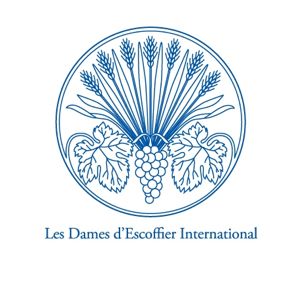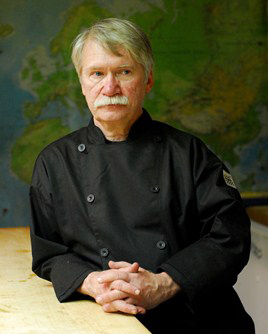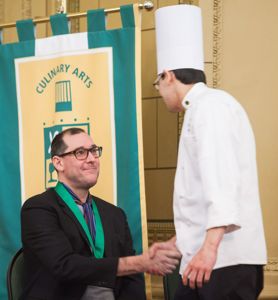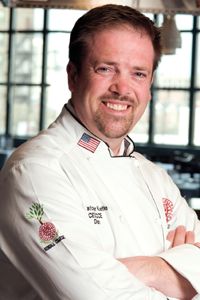 Imagine working side by side with a top caterer in Seattle, helping with the grape harvest for the oldest continuously operating, family-owned winery in California, or experiencing farm-to-table initiatives on a farm in Hawaii. These opportunities and others are available to women working in the food, beverage and hospitality industries through the 2014 Les Dames d’Escoffier International (LDEI) Legacy Awards.
Imagine working side by side with a top caterer in Seattle, helping with the grape harvest for the oldest continuously operating, family-owned winery in California, or experiencing farm-to-table initiatives on a farm in Hawaii. These opportunities and others are available to women working in the food, beverage and hospitality industries through the 2014 Les Dames d’Escoffier International (LDEI) Legacy Awards.
Established in 2009, each LDEI Legacy Award offers a one-week workplace experience to non-Dame women in the United States, U.K. and Canada. Award recipients will work alongside some of the culinary and hospitality industry’s top women professionals, all members of LDEI, an international organization of women leaders in food, beverage and hospitality whose mission is education and philanthropy.
For an application, log on to www.LDEI.org and click on 2014 Legacy Awards. Deadline to apply is April 21, 2014.
Six awards will be offered in five categories: one each in Culinary, Pastry, Wine, Food/Wine Journalism and two experiences in Farm-to-Table. The professional experience programs include:
· Culinary-Catering with Lisa Dupar, Lisa Dupar Catering in Seattle.
· Entrepreneurship-Pastry for Production with Shari Carlson of Dessert Dreams, Dallas
· Wine with Carolyn Wente, Wente Family Estates in Livermore, Calif.
· Food/Wine Journalism at Good Housekeeping magazine with Susan Westmoreland and Sharon Franke, New York City
· Two Farm-to-Table with Judith Winfrey, Love is Love Farm, and Charlotte Swancy, Riverview Farms, in Atlanta. And one on the Big Island of Hawaii with Lesley Hill and Wailea Agricultural Group
Award winners will be reimbursed for airfare and hotel accommodations for six nights for up to US$2,000. Winners will be announced in early June and

 Emmi Roth USA, an award-winning producer of specialty cheeses, has announced the winner of its Grand Cru® Recipe Contest for Postsecondary Culinary Students. Caroline Ausman of Burlington, Wis., took top honors with her recipe for Manicotti en Croûte with Brandied Fig Sauce.
Emmi Roth USA, an award-winning producer of specialty cheeses, has announced the winner of its Grand Cru® Recipe Contest for Postsecondary Culinary Students. Caroline Ausman of Burlington, Wis., took top honors with her recipe for Manicotti en Croûte with Brandied Fig Sauce. Imagine working side by side with a top caterer in Seattle, helping with the grape harvest for the oldest continuously operating, family-owned winery in California, or experiencing farm-to-table initiatives on a farm in Hawaii. These opportunities and others are available to women working in the food, beverage and hospitality industries through the 2014 Les Dames d’Escoffier International (LDEI) Legacy Awards.
Imagine working side by side with a top caterer in Seattle, helping with the grape harvest for the oldest continuously operating, family-owned winery in California, or experiencing farm-to-table initiatives on a farm in Hawaii. These opportunities and others are available to women working in the food, beverage and hospitality industries through the 2014 Les Dames d’Escoffier International (LDEI) Legacy Awards.  As educators, we cannot not ignore what consumers of education seek. So why do many in education assume that teaching and training are mutually exclusive?
As educators, we cannot not ignore what consumers of education seek. So why do many in education assume that teaching and training are mutually exclusive? Mark Ladner, executive chef of Del Posto in New York, tells CIA grads to always be students and remain curious.
Mark Ladner, executive chef of Del Posto in New York, tells CIA grads to always be students and remain curious. For starters, temperature and heat are not the same thing. When is convection mechanical, and when is it natural? And is food cooked by radiation harmful? Chef Weiner explains why all culinary students should understand the basic science behind critical processes in the kitchen.
For starters, temperature and heat are not the same thing. When is convection mechanical, and when is it natural? And is food cooked by radiation harmful? Chef Weiner explains why all culinary students should understand the basic science behind critical processes in the kitchen. Hand pies are the latest incarnation in the mini-dessert trend, crêpes add adventure to diners’ repertoires, and nuts, dessert butters and spoonables are big.
Hand pies are the latest incarnation in the mini-dessert trend, crêpes add adventure to diners’ repertoires, and nuts, dessert butters and spoonables are big. A simple concept conceived by the School of Culinary Arts at Kendall College turned out to be a powerful tool with which to teach culinary-arts students how to achieve impeccable flavor in every dish.
A simple concept conceived by the School of Culinary Arts at Kendall College turned out to be a powerful tool with which to teach culinary-arts students how to achieve impeccable flavor in every dish. CAFÉ’s second-annual Deans and Directors Retreat in February introduced a stellar line-up of thought leaders to passionate educators wishing to grow and strengthen their culinary-arts programs amid sweeping societal evolution.
CAFÉ’s second-annual Deans and Directors Retreat in February introduced a stellar line-up of thought leaders to passionate educators wishing to grow and strengthen their culinary-arts programs amid sweeping societal evolution. Incorporating sustainability and social-responsibility elements into an operator’s business is no longer a “nice to have,” according to Technomic, as Americans increasingly demand that foodservice become more responsible and transparent.
Incorporating sustainability and social-responsibility elements into an operator’s business is no longer a “nice to have,” according to Technomic, as Americans increasingly demand that foodservice become more responsible and transparent.